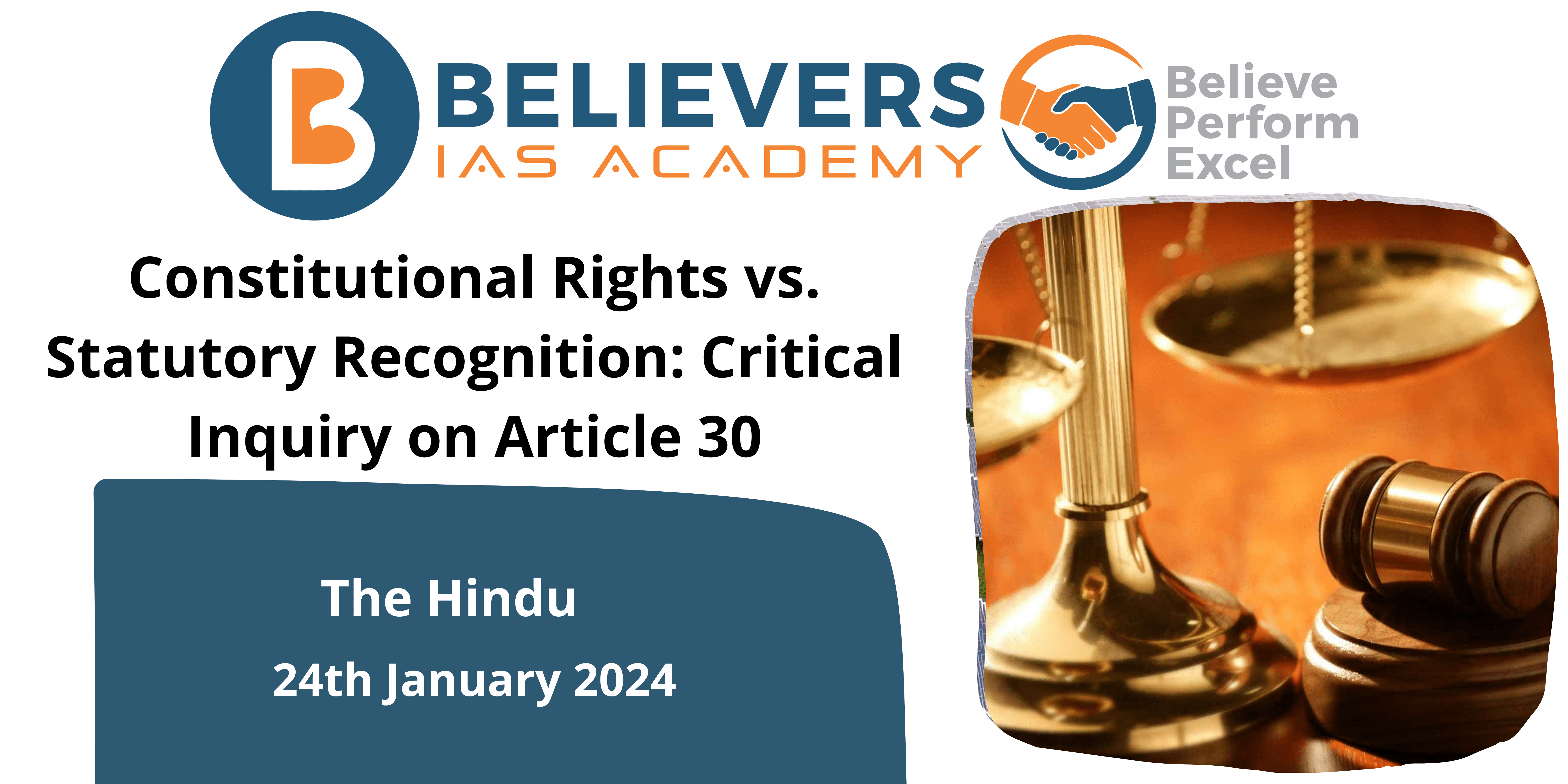Constitutional Rights vs. Statutory Recognition: Critical Inquiry on Article 30
Context:
Chief Justice D.Y. Chandrachud, leading a seven-judge Bench, raised a fundamental question about whether the right of a minority community to establish an educational institution or university, as guaranteed by Article 30 of the Constitution, should be dependent on state recognition.
Relevance:
GS-02 (Fundamental Rights)
Debate on Constitutional Rights vs. Statutory Recognition:
- The Chief Justice challenged the notion that the constitutional right to establish and administer educational institutions by minorities should be subservient to state recognition through enabling statutes.
- The court engaged in a debate with the Attorney General, R. Venkataramani, who argued for some legal authority being necessary for establishing a university.
- Chief Justice Chandrachud expressed concerns about making a constitutional right subordinate to a statute, particularly when it comes to the establishment of educational institutions or universities by minority communities.
- The court questioned the argument that even minority institutions should adhere to regulatory statutes, emphasizing factors such as the award of degrees, course structures, faculty qualifications, and adherence to national standards.
- The Chief Justice raised doubts about making the right to establish a minority institution contingent on recognition through an enabling statute.
Constitutional rights vs Statutory regulations:
Constitutional rights and statutory regulations refer to two different sources of legal principles and rules in a legal system.
Constitutional Rights:
Source: It is derived from the constitution of a country, which is the supreme law of the land.
Nature: Fundamental rights and freedoms guaranteed to individuals by the constitution.
Enforcement: Protected and enforced by the judiciary; individuals can approach the courts to seek remedies for violations.
- In India, the right to equality, freedom of speech, and the right to life, etc are some examples of constitutional rights outlined in the Indian Constitution.
Statutory Regulations:
Source: Enacted by the Parliament through statutes or laws.
Nature: Specific rules and regulations created by legislation to govern various aspects of society.
Enforcement: Implementation and enforcement are carried out by government agencies and bodies specified in the relevant statutes.
- Traffic laws, environmental regulations, labor laws, and educational standards are examples of statutory regulations that are created through legislation.
Article 30:
Right of minorities to establish and administer educational institutions
- (1) All minorities, whether based on religion or language, shall have the right to establish and administer educational institutions of their choice.
- (2) The State shall not, in granting aid to educational institutions, discriminate against any educational institution on the ground that it is under the management of a minority, whether based on religion or language.
- This article grants minorities, whether based on religion or language, the fundamental right to establish and administer educational institutions of their choice.
- It is a constitutional safeguard aimed at protecting the cultural and educational rights of religious and linguistic minorities in India.




